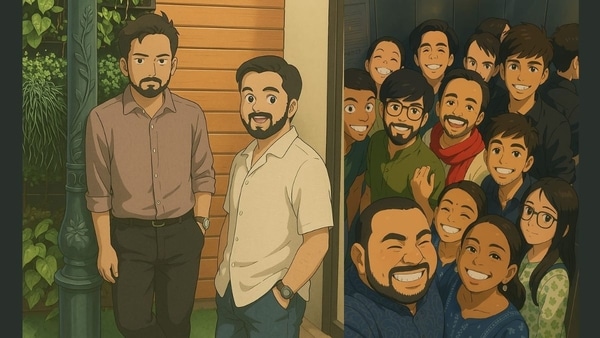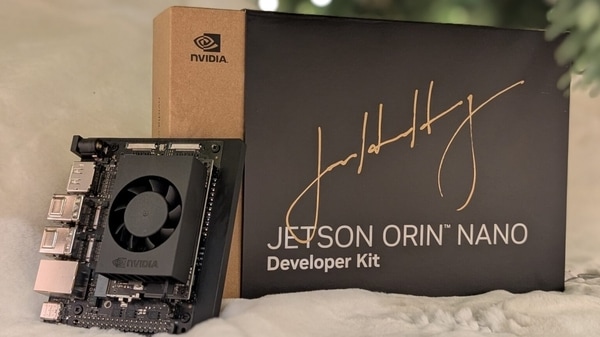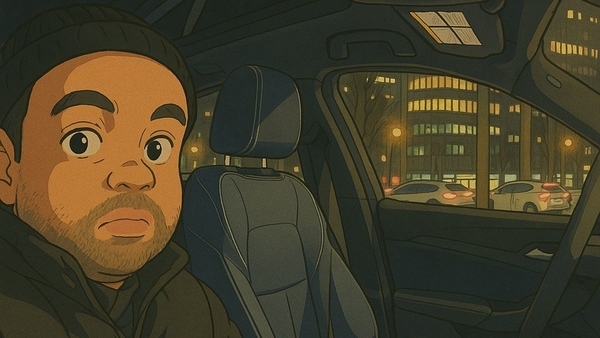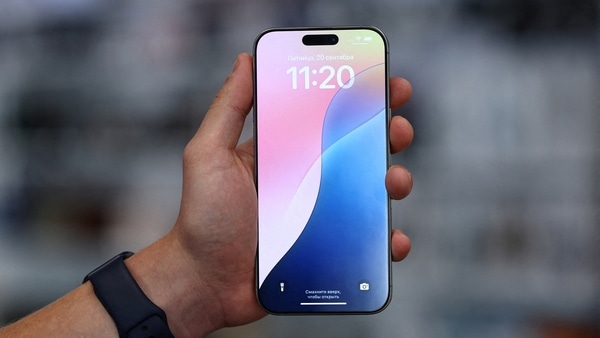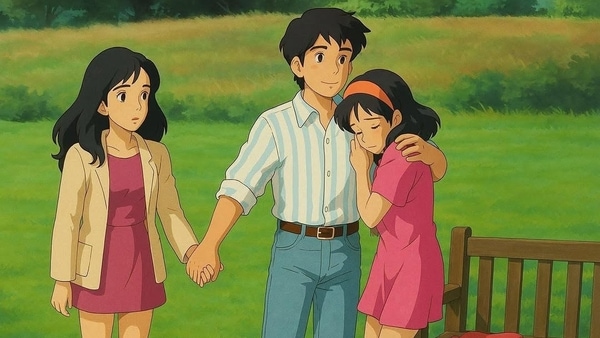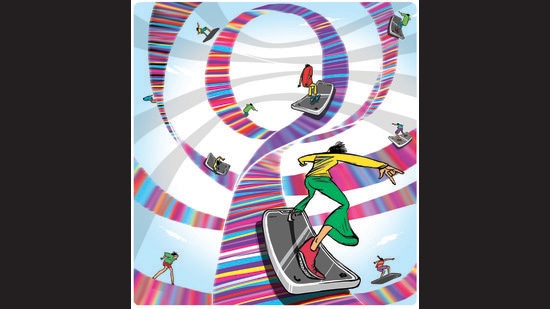
Storm warning: Charles Assisi responds to readers hurt by his piece, Snap out of it, Gen Z
7 months ago | 80 Views
When I reflect on the India I grew up in, in the 1980s, my memories are marked by the humility of our circumstances. We grew up in what we thought was the middle class. In reality, it was closer to what might now be considered poverty.
The idea of safe spaces didn’t exist. As a Mumbai college principal reminded me last week, we didn’t have the language to express our states of mental health. Even ideas such as “good touch” and “bad touch” were alien when I was a child.
Most ambitions were shaped by the limited resources available. Yet, perhaps because of this, we emerged from our youth with a certain resilience.
Between the lack of a vocabulary and lack of awareness, it was inevitable that our struggles would become internalised.
While this may not have been the healthiest approach, it forged within us a kind of mental toughness that stayed. We stepped into the workforce not with the expectation of finding the perfect job or a passion project, but with the understanding that work was a means of survival and, if we were lucky, perhaps self-actualisation. We didn’t wait for the world to accommodate us; we adapted to the world.
Hard work, resilience and upward mobility are the traits by which my generation is defined. Each generation in a given context is defined by certain traits. This is simply (social) science. It is borne out by data.
The traits themselves are often shaped by new discoveries and inventions. This has been true since the discovery of fire and the invention of the flint arrowhead.
Gen Z, in many ways, is the product of a wholly different world: a world that we helped build.
This world is more comfortable, more connected, and, in many ways, more accommodating. Yet it is also a world that appears to have fostered a kind of fragility that concerns me.
In an overly flattened reality — where everyone has a platform and every opinion is treated as valid — there are times when it appears to me that speaking one’s truth has tipped over into something else: a kind of dependency on being understood, accommodated, and protected from challenges.
This is not to say that all of Gen Z is fragile or ineffective. In fact, this is a generation framing new vocabularies, being vocal about key issues, and doing a better job of this than my generation did.
But vocabulary and outspokenness are not in themselves a solution. What I find troubling is the extent to which this fact is obscured.
There has only ever been one way to solve problems and it is to get down in the trenches, thrash things out (because no one opinion will ever, or should ever, hold complete sway) and then figure out ways to collaborate, and create.
The hard truth is that our complex, nuanced world often will not care what you think. It will roll on anyway.
My worry, is that too many in Gen Z do not acknowledge this truth, and I fear that they may not know how to handle it.
***
Again, not all of Gen Z fits into this mould — far from it. The voices that rose in response to my column (Snap out of it, Gen Z; July 21) were passionate, articulate and committed. If anything, their voices demonstrate the very resilience that I still fear is too scarce.
When I speak to keen observers such as Smita Krishnan, my former teacher and head of the department of zoology at Mumbai’s St Xavier’s College until last year, they express the same sentiment: these individuals are outliers. They are the ones who, despite the comforts of modern life, embrace the spirit of hard work and perseverance.
They don’t represent the majority, Krishnan says. When did the needle tip? “It happened. I don’t know when,” she says.
The majority of Gen Z, I fear, has grown accustomed to a world where the rough edges are smoothed over, where discomfort is avoided rather than confronted, and where goals are too often shaped by the desire for immediate gratification.
Why is this a problem, I have been asked. It is a concern, and a problem, because challenges cannot be avoided. Safety nets will fail. And it is far harder to try to build resilience in real time, than it is to do it through discipline and effort in the early years.
Where does this leave us? It leaves us with the understanding that every generation has its battles to fight. For Gen Z, the battle is not against the material hardships my generation faced, but against the psychological and existential challenges of a world that is, in many ways, more uncertain and more demanding.
It leaves us with the understanding that resilience is not something that can be handed down or taught in a classroom; it is something that must be developed through experience, through facing and overcoming the very challenges that, at times, seem overwhelming.
I have great faith in the outliers who wrote their passionate notes to me, and in others who have already shown that they possess the strength to thrive in a world that is not always kind. But I worry for those who have yet to realise that true resilience is built not in comfort, but in adversity.
The path that lies before you is more complicated than it has been in a long time. Resilience is what will make the way down it easier. God speed, and may the outcomes always be closer to what was hoped for, and better than what was feared.
THREE YOUNG READERS HAVE THEIR SAY
‘Who is really at fault here?’
Hi Charles,
I am a regular reader of your weekend columns in Hindustan Times and enjoy your insights on the world of business and technology. However, your column, Snap out of it, Gen Z (July 21) filled me with rage.
You began by saying that growing up in a middle-class family in the ’80s made you hardworking and resilient, and that today’s Gen Zs are comparatively “unfamiliar with hard work” and “fragile”. If you feel this way, it might be because you have encountered the wrong type of Gen Z, likely those born into privileged households with generational wealth.
It’s not that Gen Z is fragile; it’s that you have levelled up in life…
You wrote that role models don’t exist in the truest sense, as if they ever existed in the first place. With the advent of the internet, we have more access to all sides of the stories of these “role models”; the reality versus the story projected by their PR teams. We witness their rapid rise and fall, making us disillusioned at a young age, which I feel is for the better. All the angels are fallen, if they were ever angels in the first place…
We have become disillusioned because the very people whom we are conditioned to look up to for inspiration have done condemnable things, from evading taxes to sexual harassment to running polluting industries, aside from providing weapons and funding countless unnecessary wars for their own profit.
You wrote that our role models are influencers who have perfected the art of the selfie. Sorry, sir, we are much bigger than that. Our role models are those who make lots of money and retire early to live a peaceful life…
Yes, our brains have been rewired by social media and that is no good. The ever-refreshing feeds have hijacked our dopamine circuits and reduced our attention spans. The impact is even worse for those below 20 years, whose brains are yet to fully develop. But aren’t you also affected? I see my father always on the phone, on Facebook even at dinner or while watching TV, and even late at night.
He never listens to my rants about how this is not good for his sleep because he is my father, and fathers never accept their mistakes nor listen to their children.
Even my mother used to scold both me and my father for being too absorbed in our mobiles. Three years ago, I bought her a smartphone, and now she also watches Reels whenever she gets slightly free…
And who is really at fault here? The consumers who have become reluctant addicts of these gamified apps, or the giant corporates (run by Gen X and older millennials) who recruit the world’s best brains for the sole purpose of hooking our attention to these apps to generate revenue?...
You have rightly written that our generation is more inclusive, more aware, and incredibly adaptive to a constantly changing world (as if we have a choice) – and all this is despite, not because of, the influence of your generation. A certain credit also goes to the modern-day educators and content creators (who are all classed under the misleading term “influencers”, again by Gen X marketers), who have harnessed the power of the internet and social media to educate people about these things…
The world has never been more uncertain. We won’t be able to cope with AI’s exponential growth, no matter how fast we upskill. Our educational institutions and universities, with their 20th-century hive brain, haven’t even come to terms with the rapidly changing 21st century, and the inevitable AI storm will surely give them a concussion.
Gen Z has lived through a global pandemic, back-to-back recessions, and wars and genocide being live-streamed to our phones. It has left them feeling helpless, desensitised to the violence and chaos in their society. The bizarre has been normalised…
And you call us “fragile”?
You are right that the world needs more innovators, creators, and doers, but is that acceptable in our society? Risks are for rebels, and rebellion is looked down upon.
Our public universities give a pittance of a stipend to research students. No wonder most researchers move to foreign countries. So the people who ultimately become successful in these fields are just creatures of pure passion. Yet how many of them are celebrated or even respected by society?...
Our times are as difficult or perhaps more difficult than yours. I hope this mail (or rant) has somehow helped you realise that we don’t have it easy.
Regards,
Animesh Bhattacharya, 28
(a software engineer from Navi Mumbai)
‘I have classmates with graying hair’
Hello Sir,
I have spent a long time debating this, typing and then saving to drafts only to open it up again. Is it really something to email about? My reaction to an article?
It’s not the first time I’ve heard criticism of my generation.
In my opinion we are pretty flawed, but so is everyone else.
But I think this is the first time I’ve seen it in the papers, and the papers hold more weight than any Twitter rant… I have thoughts about several lines that stood out to me….
For the larger part of my life, I grew up in South Bombay. Many of my peers were the “bhaya gari ley ao” types. They did not know how to use public transport and nor did they have any intention to. But, this is not all my classmates. And it most certainly isn’t all the young people in the world.
There are people such as myself and a chunk of my friends, who adore the Bombay local trains. We, the people in the women’s-only compartment, have a place to go to, work to get done, and a diem to carpe.
Your criticism of Gen Z may be fair for the small population of brats like me who really do float around with little to no purpose but it’s not for those who work day and night preparing and planning to solidify their all but uncertain futures…
I have classmates with graying hair, shattered sleep schedules and chronic pains in their wrists from filling so many notebooks. Just today, a girl in my class showed up with a torn ligament and a wheelchair to write a 40-mark test.
I spent most of my 10th standard throwing up each morning from a combination of stress and fatigue. My friend’s hair was falling out in clumps.
The NEET students who have no clue about their future are Gen Z too. They look up to the greats that you mentioned and many more. They slaved away, some of them driving themselves to the brink of insanity. But that’s the condition of every student now.
There’s AI robbing future artists, writers and any person with a shred of creativity of a career that they might enjoy. Even tonight, as we see the news of the Bangladeshi youth, protesting not out of frivolity but for a real issue that affects them, there are still those who think that the younger generation has no mettle.
I have to agree once again that we could stand to pick up a book, and while many of us do, most of the time we don’t have much of a choice to pick any book other than the textbook…
Say that you’re physically and mentally stronger than us? Valid, we’re definitely more fragile. But we’re also prioritising our own boundaries and emotions. Something which women of your generation may understand more than men would.
I can help with explaining safe spaces. Do you ever want somewhere or someone that doesn’t judge you? Do you have a confidant who you share your troubles with? Well, congratulations! You too have a safe space…
While the logic is flawed I know why we look up to influencers. They appear free, happy, perfect, and who wouldn’t want to live like that?
Then again, we look up to other people too. Many of them are important figures of history that were earlier forgotten, strong women and faithful men who hold our respect and set an example of the type of person we want to be. It’s harder to appreciate the old achievers though, because the truth about them is revealed too easily, isn’t it?
So instead of the big people in the skyscrapers, many of our inspirations are the seemingly mundane creatures around us. The people that we so easily take for granted, the animals that seem to have more humanity than we do, the objects that have more meaning to us than any trend or celebrity, the photographs that we treasure of the rawest and most unfiltered moments.
In your article you say you wish that Gen Z had better role models, it made me wonder whether we choose who our role models are or we just pick from what we see in front of us.
There’s a lot I don’t know but I do know that the only ones who can solve the issues with the younger generations are the older ones who shape the world they grow and develop into.
I believe I’ve said my piece and I do apologise if I’ve overstepped somewhere in my adolescence-fuelled response.
Thanking you,
Ira Ugra, 17
(a Class 12 student from Delhi)
‘Grateful for your article in Hindustan Times’
Grateful for your article in Hindustan Times. It was an eye-opening article for me as Gen Z. Specifically your words: “The world does not need more influencers. It needs more innovators, creators and doers… We do have to decide what to do with the time that is given to us.” Thanks.
Read Also: Best waterproof smartwatch: 10 must-have options for swimming and everyday wear
#

